Jonathan Calof: 'I Hope That I Will Be Able to Travel to Moscow to Be with My HSE Colleagues and Friends Soon'
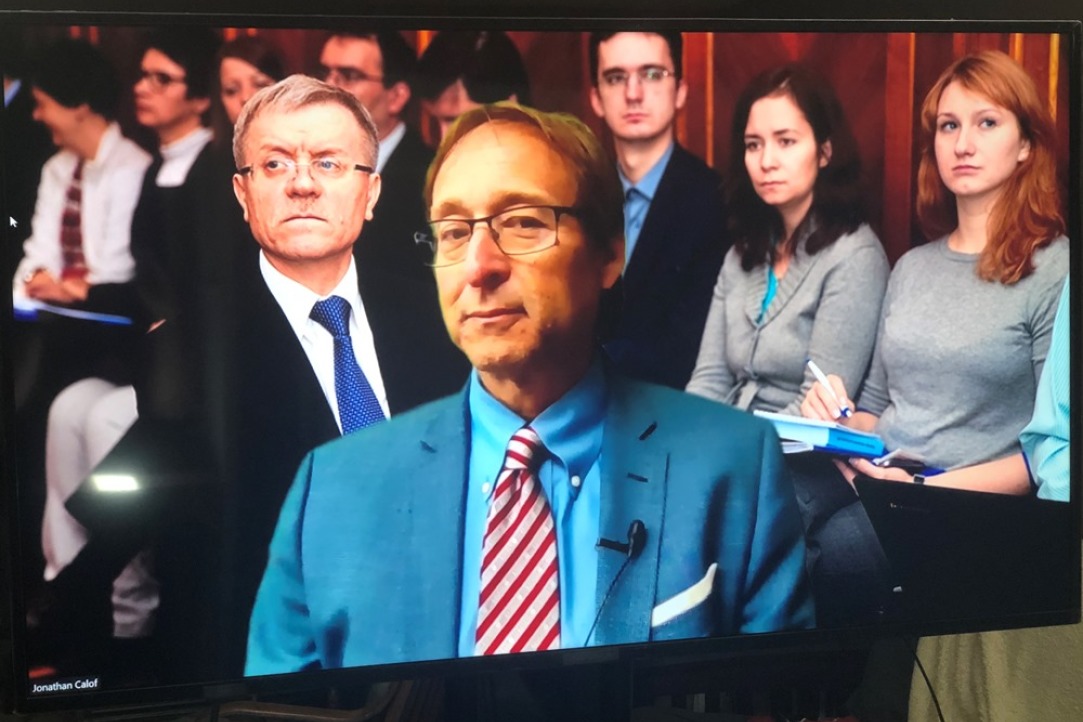
Jonathan Calof has been cooperating with HSE since 2009. In an interview with HSE News Service he talks about how his involvement with HSE began, what projects he has been part of, and how he has organised his online work during the recent lockdown.
My involvement with HSE began in 2008 at the Seville FTA conference where my friend Jack Smith and I presented the results of our study 'Critical Success Factors in Government led Foresight'. At that conference, I met Alexander Sokolov. He made a fascinating and informative presentation about Science and Technology Foresight in Russia.
As impressed as I was with the status of foresight both in Russia and at HSE as described in his presentation, I was even more impressed with Alexander himself, his foresight knowledge, plans for foresight at HSE, and his personality. Alexander was an easy person to both like and respect. He asked me if I would like to become involved with the growing foresight programme at HSE and I quickly said yes. In 2009 I travelled to Russia to be part of Nanoforum’s Foresight, Roadmaps and Indicators for Nanoindustry international workshop which was run by HSE ISSEK.
Based on my interactions with Alexander and the others that I met from HSE ISSEK I was convinced that HSE was the kind of organisation that I wanted to be involved with and was honoured when I was asked to join the foresight programmes International Advisory Committee.
The following year I attended my first international advisory committee meeting for HSE ISSEK. It was at that meeting that I got to spend some time with Leonid Gokhberg — yet another honourable, impressive, and knowledgeable foresight leader from HSE.
This began my over 10 year involvement to date with HSE ISSEK. It has since grown into numerous projects, teaching and close friendships. I hope that my involvement not only continues but grows.
Teaching at HSE
What started as involvement with the international advisory board grew to include research and publication activities, presentations at HSE ISSEK conferences, reviewing Masters theses, teaching, and involvement with their excellent journal Foresight and STI Governance.
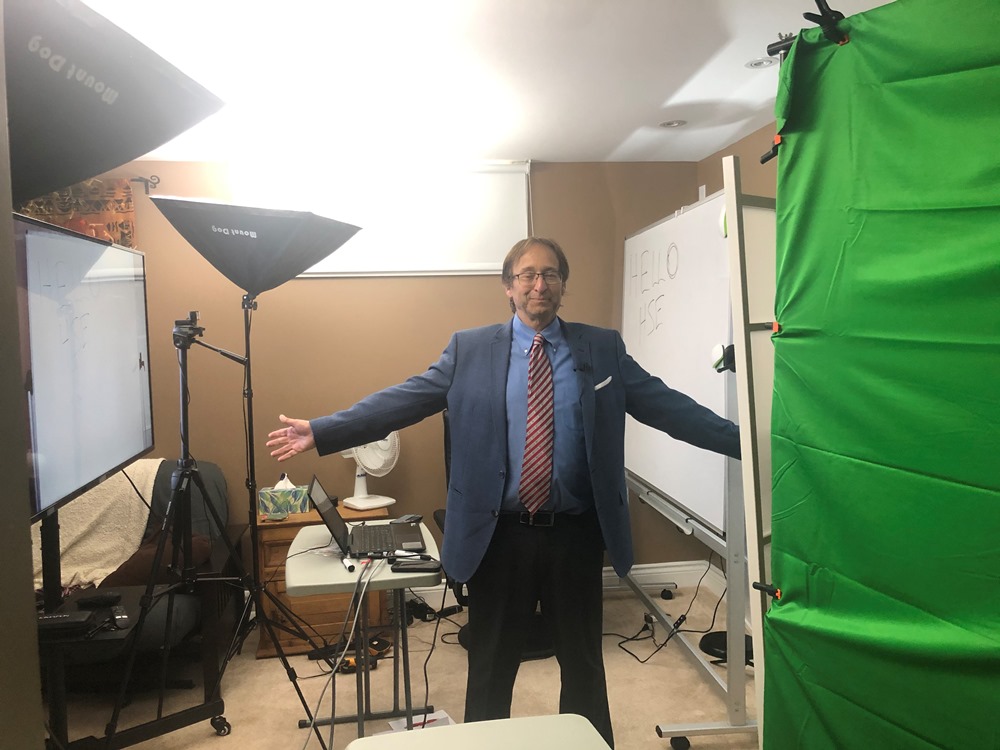
For several years I have given lectures in Konstantin Vishnevskiy’s Corporate Foresight class about market insight/competitive intelligence and in December 2019 I taught a series of modules on market insight competitive intelligence to the master students. Dirk Meissner, Olga Maximova, and Veronika Belousova were instrumental in helping to make the teaching experience such a positive one for me.
The teaching experience at HSE is one that I thoroughly enjoyed and look forward to repeating in the future.
Research and Publications
In 2019 I was invited onto the editorial board of Foresight and STI Governance and am helping the journal with a special issue on competitive intelligence designed to educate the foresight community about this foresight related discipline which will be released in 2020.
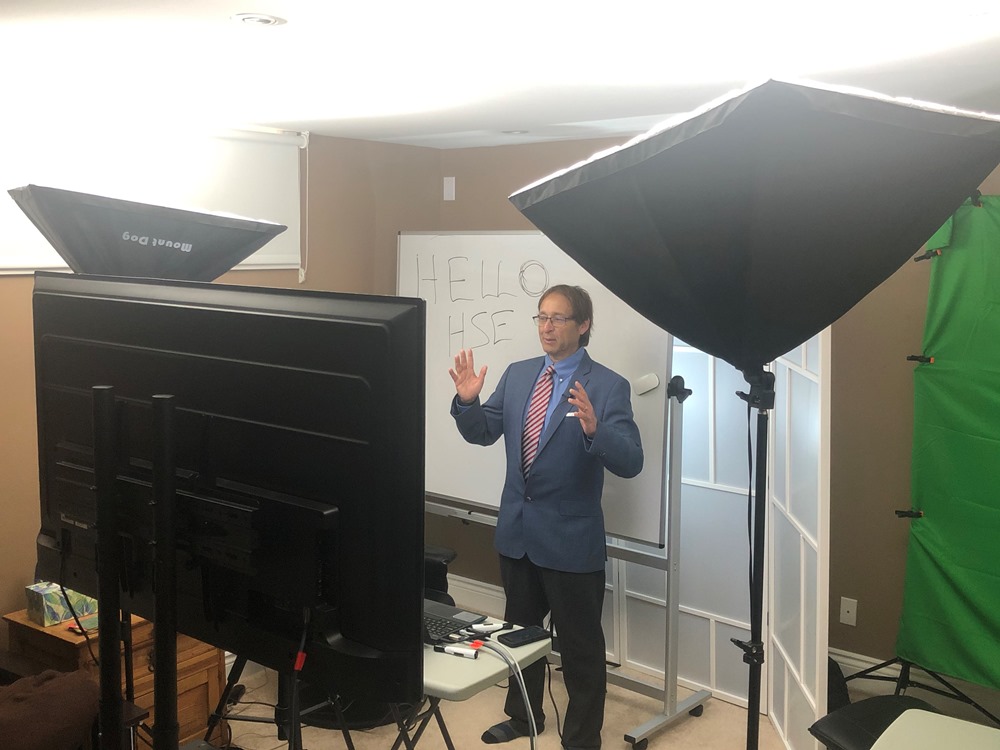
Over the years, I have had the privilege to work with many of the staff and professors at HSE. Dirk Meissner was the first person that I had opportunity to do research and write with. Given what I saw when working with him it came as no surprise to me when he was awarded the title of Distinguished Professor at HSE. It is a well deserved title for a professor who gives so much both to organizing the Master’s programme in Governance of STI and to research activities.
Dirk and I along with Anastasia Razheva wrote a paper looking at foresight’s contribution to open innovation. Dirk and I also did research on corporate foresight with Konstantin Vishnevskiy which has led to case studies that have been published in Foresight and a book chapter.
The articles and cases highlight how corporate foresight can impact strategic and tactical decisions. This material will help foresight community understand how to do impactful foresight projects and also will be used to help train tomorrow’s foresight practitioners and researchers.
Other projects underway now include looking at R&D management practices in Russia with Konstantin Fursov and a book idea that I am exploring with colleagues at HSE that looks at how big data and analytics has been used for government and corporate decision. Ozcan Saritas and I are exploring other project ideas as well.
Coping with Distant Work
I’m living in Ottawa Canada and doing all my teaching, consulting, seminars, and research activities via the Internet. I’ve built in my house teaching, seminar and webinar sets with the help of one of my close friends who is a producer director in Hollywood.
The set up includes three Web-Cams with a remote switching device to switch between them, a wireless microphone, Green Screen, 60 x 70 cm whiteboard, four movie lights, 58 inch TV various tripods and other items.
The space consists of four sets: a classroom set which has the whiteboard and a webcam on a tripod so I can teach standing up, two webinar sets that includes a comfortable black leather chair in one and a sofa in the other, and the last set consists of a green screen which can be used to create other virtual sets.
I have used the classroom set to teach Master’s and undergraduate students as well as executives. The discussion sets have been used for conferences and webinars. For example the other day I conducted a webinar titled ‘Covid-19 on the World Stage’. This webinar involved me having a discussion with four ambassadors about the status of Covid-19 in their countries and their suggestions for how multilateral organisation need to be involved. Two weeks earlier I used the discussion set to co-chair an academic conference on Foresight and Market Insight in Germany. A week before that, I used all the sets for a virtual trade mission to Vietnam.
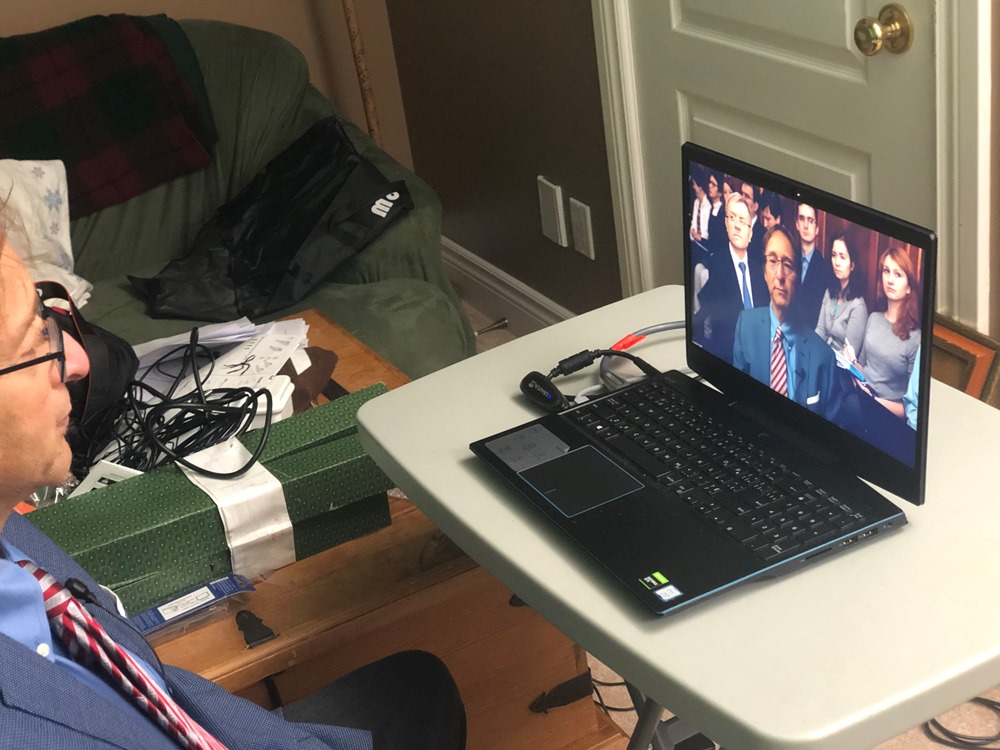
Teaching Online: Lessons Learnt
First, I have learned that online classes can be effective even when teaching with cases. (Even though cases require high levels of student interaction). Retention of knowledge, learning, and participation were higher in this online approach than in the classroom – it can work.
Second, I have learned that the students are incredibly resilient. I was impressed at how they adapted to this massive change in their school environment arising from Covid-19 and how they worked hard to make the online teaching work.
Third, I have learned that the technology can work provided that the professor is prepared to adapt. I could do an entire article about how to effectively use online technology for teaching. I have had a lot of fun learning how to teach online. I have watched many videos on it from Harvard Business School, the Ivey School of Business and others.
I have learned how to use virtual breakout rooms to enhance both learning and student participation. Thanks to all the experts and the technology, I have created a virtual classroom and a simulated classroom experience. This kind of online teaching where you simulate a classroom can work and going forward it will change aspects of how I do teaching and research.
Pandemic: Positives and Negatives
The pandemic has given me the opportunity to learn a lot about online teaching. Not travelling or going to meetings has also opened up a lot of time for activities as well which has resulted in five articles awaiting publication, a book almost completed and a book proposal nearing completion. These are the positives.
But there are also many negatives. It has also taught me that work/life balance can be difficult when your office and kitchen are only a few feet apart and meetings can be set up far too quickly and easily since everyone is at home.
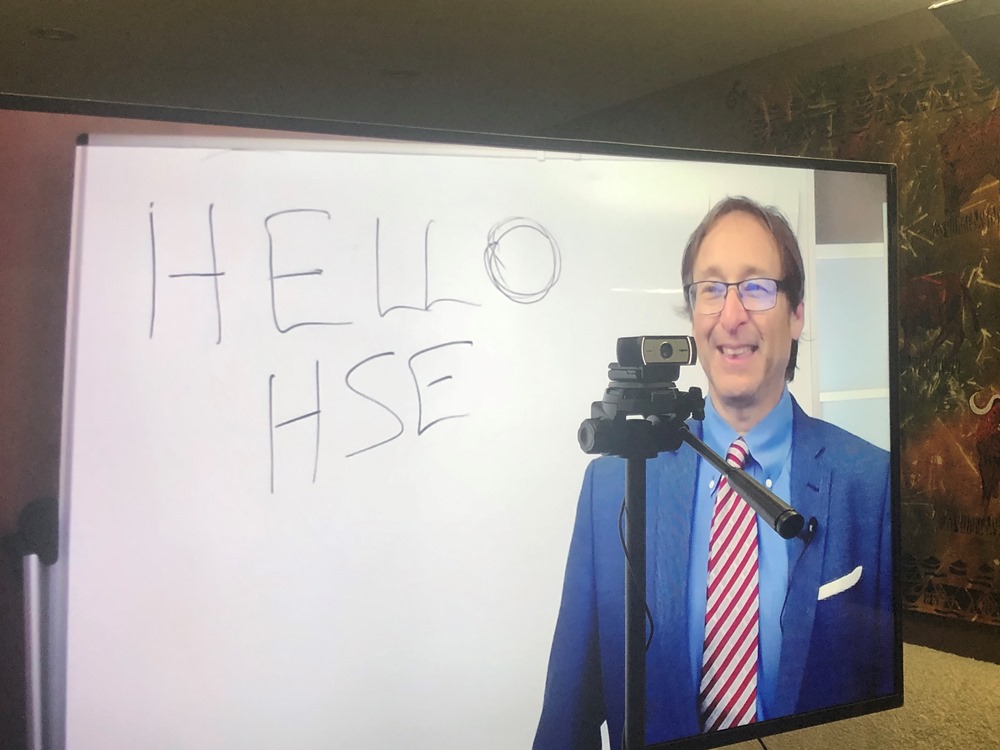
More negative is that it prevents me from visiting my HSE colleagues and friends, my HSE family in Moscow. It meant no April conference in Moscow, no summer visit. While I have seen many of them via zoom, skype and WhatsApp, it is not the same as being together in person and sharing meals together.
The technology is great but being together in person is far better and I hope that I will be able to travel to Moscow to be with my HSE colleagues and friends, my HSE family soon.
Veronika Belousova
Leading Research Fellow, Unit for Intellectual Services Market Research
Konstantin Vishnevskiy
Director, Digital Economics Centre
Leonid Gokhberg
Director, Institute for Statistical Studies and Economics of Knowledge
Dirk Meissner
Head, Laboratory for Economics of Innovation
Olga Maximova
Manager, Laboratory for Economics of Innovation
Ozcan Saritas
Head, Laboratory for Science and Technology Studies
Alexander Sokolov
Director of the International Research and Educational Foresight Centre
Konstantin Fursov
Deputy Director, Centre for Statistics and Monitoring of S&T and Innovation

